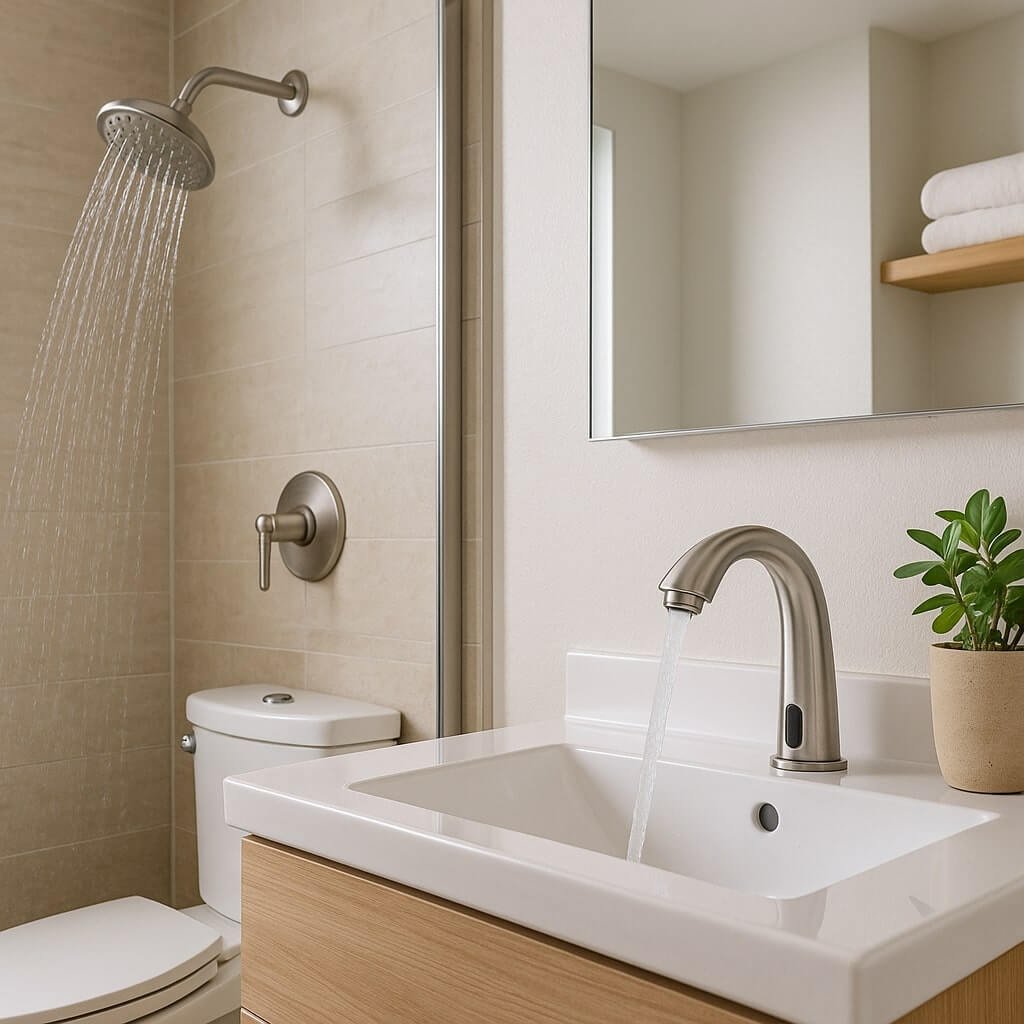When it comes to upgrading your bathroom, choosing the right countertop is more than just a style decision—it’s about durability, maintenance, and long-term value. Among the top contenders, quartz and granite countertops remain the most popular choices. But which one truly fits your lifestyle and budget?
In this article, we’ll dive deep into the pros and cons of quartz and granite bathroom countertops, helping you make the best choice for your space. Whether you’re doing a full remodel or a simple refresh, this guide will help you select a countertop that blends aesthetics with functionality.
Quartz Countertops: A Modern Favorite
Quartz countertops are engineered from natural quartz crystals combined with resin binders and pigments. The result? A non-porous, ultra-durable, and low-maintenance surface that’s ideal for busy households.
Key Benefits of Quartz:
- Low Maintenance: No sealing required—just wipe clean with soap and water.
- Wide Variety of Colors: From pure white to marble-look veining, quartz offers consistent patterns and modern tones.
- Stain-Resistant: Its non-porous surface resists water, oils, and makeup spills—perfect for bathrooms.
- Bacteria-Resistant: Quartz’s non-porous nature also means fewer germs and mold.
Considerations:
- Not Heat-Proof: Prolonged exposure to high heat can damage quartz.
- Can Be Costly: High-end quartz can rival granite in price, especially for custom cuts or designer brands.
Granite Countertops: Natural Beauty & Timeless Strength
Granite is a 100% natural stone, cut from quarries and polished into slabs. It’s beloved for its unique veining, heat resistance, and classic elegance.
Key Benefits of Granite:
- Natural Patterns: No two slabs are identical, giving your bathroom a one-of-a-kind look.
- Highly Heat Resistant: Hot curling irons and steamers? No problem!
- Long-Lasting: With proper care, granite countertops can last decades.
- Adds Home Value: Granite is a strong selling point for homebuyers.
Considerations:
- Requires Sealing: Granite is porous and needs sealing every 1–2 years.
- Can Be Prone to Cracking: While rare, improper installation or impact can cause cracks.
Quartz vs. Granite: A Quick Comparison Table
| Feature | Quartz | Granite |
|---|---|---|
| Appearance | Consistent color/patterns | Natural, unique veining |
| Maintenance | Low – No sealing required | Moderate – Needs periodic sealing |
| Durability | Very high (non-porous) | High (porous, needs sealing) |
| Heat Resistance | Moderate – can scorch | Excellent |
| Stain Resistance | Excellent | Good (if sealed properly) |
| Cost | $$–$$$ | $$–$$$ |
| Eco-Friendliness | Manufactured, but recyclable brands exist | Natural stone, energy-intensive to mine |
Which Is Best for Your Bathroom?
Choose Quartz if:
- You want a modern, low-maintenance look.
- You need a surface that resists spills, bacteria, and moisture.
- You prefer uniform design and color options.
Choose Granite if:
- You love the uniqueness of natural stone.
- You frequently use hot tools and need heat resistance.
- You don’t mind resealing every few years for long-term value.
Expert Tip: Think Beyond Looks
While style matters, don’t forget to evaluate:
- Humidity levels in your bathroom.
- Daily usage and potential for spills or heat.
- Long-term investment vs. short-term budget.
For family bathrooms, quartz might be more forgiving. For luxurious master bathrooms, granite can add a wow factor.
FAQs About Quartz vs. Granite Bathroom Countertops
1. Is quartz better than granite for bathrooms?
It depends on your needs. Quartz is easier to maintain and more stain-resistant, while granite is better for heat resistance and offers natural beauty.
2. Which countertop lasts longer, quartz or granite?
Both can last 20+ years. With proper maintenance, granite can last a lifetime. Quartz doesn’t require sealing, which makes its maintenance easier.
3. Do quartz countertops scratch easily?
Quartz is scratch-resistant, but not scratch-proof. Always use caution with sharp objects.
4. Is granite safe in moist bathroom environments?
Yes, as long as it’s sealed regularly to prevent water absorption and mold growth.
5. Which is more expensive, quartz or granite?
They’re often similar in price. Custom quartz designs or rare granite slabs can increase costs, so it depends on the material source and labor.
Final Verdict: Go with What Works for Your Bathroom
Choosing between quartz and granite ultimately comes down to lifestyle, design preferences, and how much maintenance you’re willing to handle. Both options are beautiful, durable, and bring long-lasting value.




